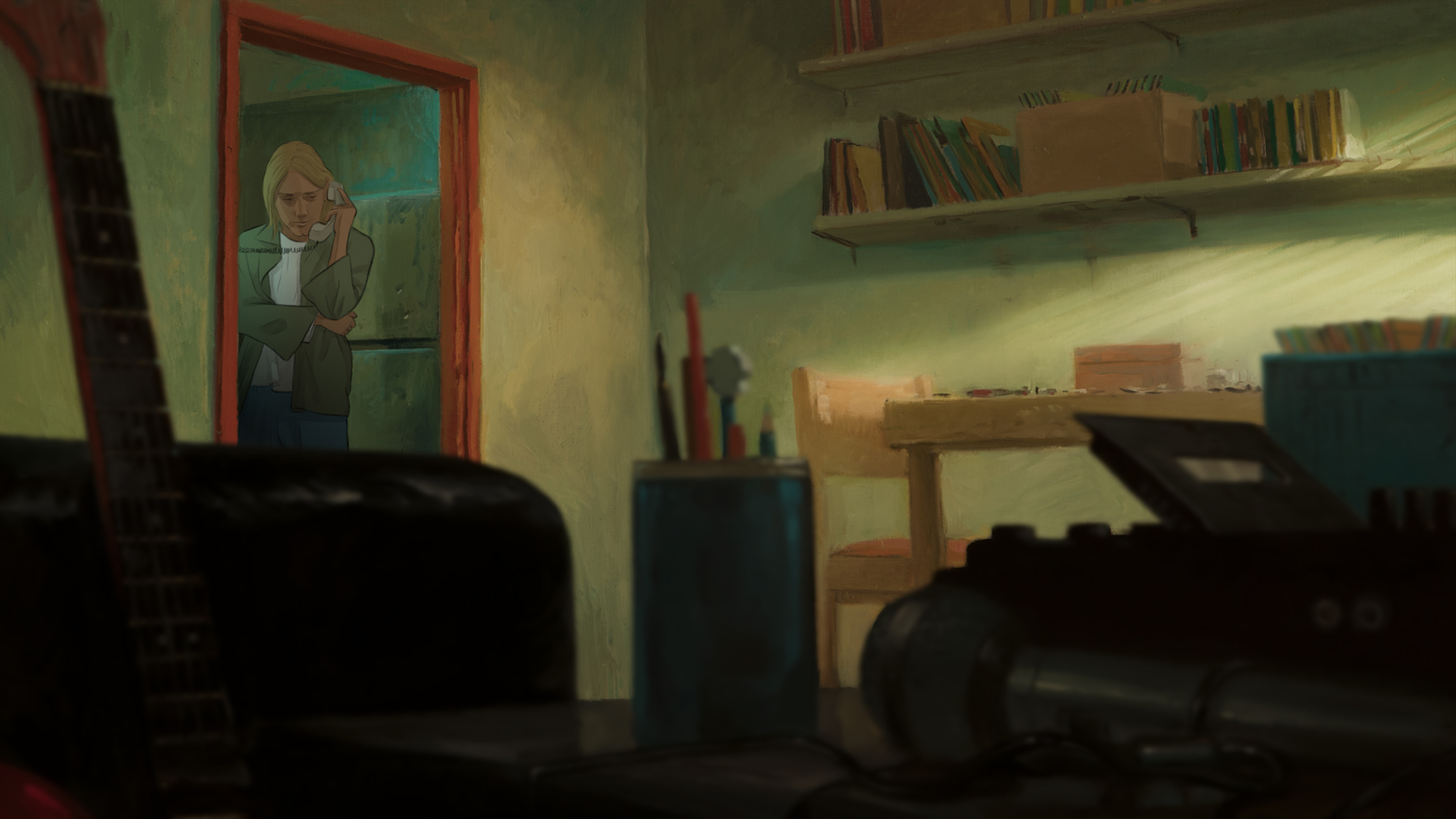Release Date: November 13, 2015
Label: Universal Music
Kurt Cobain died at age 27 in 1994 of a self-inflicted gunshot wound; unlike Elvis or Tupac, even his conspiracy theorists don’t think he’s still alive. This year’s be-all end-all documentary, Montage of Heck, makes the wise choice of ending when he ends; his daughter Frances served as executive producer and was adamant that it not be romantic. One of the centerpieces, if you must call it that, is an animated retelling of a high-school Cobain’s supposed attempt at sexual activity with a classmate who was labeled “retarded.” The aftermath of school kids’ torment and the girl’s enraged father led him to lie down on railroad tracks. The train missed. Romantic it is not. It’s even uglier removed from the film as a spoken-monologue called “Aberdeen” that no one needs to hear twice.
There is such a thing as overvaluing the unromantic, the raw and the juvenile, and much of Montage of Heck: The Home Recordings — 31 tracks in its deluxe edition and a mere 13 if you’re somehow a big enough fan to own this but not big enough to want most of the record — isn’t a listening experience fit to be placed on the shelf next to Nirvana’s albums, even posthumous ones like Live at Reading that have become crucial to the canon. What the scrapings of this soundtrack imply is that the well of a great artist’s work is dry, and it was wise to keep the Nirvana name off. But it’s still gross to try and weekend-at-Bernie’s a Cobain solo record from it.
Montage director Brett Morgen likened his film to “this generation’s The Wall,” in case you wanted to know the kind of excess he holds in high regard. So it’s no surprise that pared down from 200 listenings to Cobain’s home demos, he developed Stockholm syndrome. Much of The Home Recordings is engaging in the documentary, with lots of help from animated sequences, color commentary, and the multidimensional experience of film. Divorced of Kurt’s fantastic drawings and writings brought to life, the sparse music here needs water and flesh.
https://cache.vevo.com/assets/html/embed.html?video=USUMV1500543&autoplay=0

Also Read
Kurt Cobain Forever
This is indeed music fit for watching a rotoscoped Cobain playing bass on a countertop next to a sink full of dirty dishes, or stock footage of Satanic rituals being performed in a Mr. T mask. Morgen was wise to prop these songs up with those visuals in the film. While it was inevitable that they’d be released as a soundtrack, that doesn’t make an excruciating version of the voice mutilation “Beans” or the numbing effects-pedal walkthrough “Reverb Experiment” worth your time. The diehards will be “fascinated” — twice, tops — by the John Fahey ragtime instrumental “The Happy Guitar,” or as Cobain’s high-pitched mumble forms into the phrase “Something in the way” from teakettle sludge of its demo.
Listening to the man find his voice is the only “thrill” here, as familiar (if hardly marquee-level) Nirvana staples like “Been a Son,” “Scoff,” “Sappy,” and “Frances Farmer Will Have Her Revenge on Seattle” all appear sans finished lyrics, or sung in too-high or too-low range-testing cadences like a very bored kid performing for a live studio audience of stuffed animals. “Rehash” is less a song than a session of Kurt trying to find his shriek over a dead horse of a “Peter Gunn” riff, and “Scream” is 32 seconds of guess-what.
Marvel as he flips through his notebook for the right words when he’s got chords: On “You Can’t Change Me/Burn My Bridges/Something in the Way (Early Demo),” a potentially attractive riff on “Burn My Bridges” underpins the syntax pattern of what sounds like the phrase “straight to my heart,” which sounds a lot like the “close to his heart” chorus from “Swap Meet.” Did you get bored halfway through that sentence? Then this soundtrack will be slim pickings for you too.
From the pits of bass noodling, four-track collaging and throat experiments comes “And I Love Her” in a downcast, bluesy key somewhere between Soundgarden’s “Fell on Black Days” and his own epochal conjuring of Leadbelly. It’s Kurt covering the Beatles. It will be celebrated and remembered like nothing else here. It’s fine.
But the very, very final stretch is almost redemptive. “Poison’s Gone,” is an honest-to-God song, with vocal curls that sidle around the corners of its haunting chord progression and the entertaining “Rhesus Monkey” is a rap/slam poetry collage that mentions that old Cobain obsession/abortion inducer “pennyroyal tea.” And finally, track 31 is a redundant, creaky version of “Do Re Mi,” better heard on the With the Lights Out box (which itself requires weeding). It’s still his best posthumously released song — take that “You Know You’re Right” — but these scraps aren’t enough. They’re also nowhere to be found on the 13-track edition.
It’s not that The Home Recordings didn’t need to exist, per se, though one can only hope it’s the bottom of the vaults. But it feels more invasive to listen to than Kurt Cobain: Journals did to read. The book was more cannily self-aware of a potential audience than these warm-ups. At least the film knew where to end.




